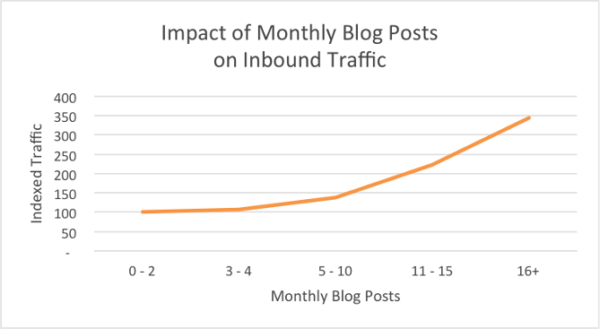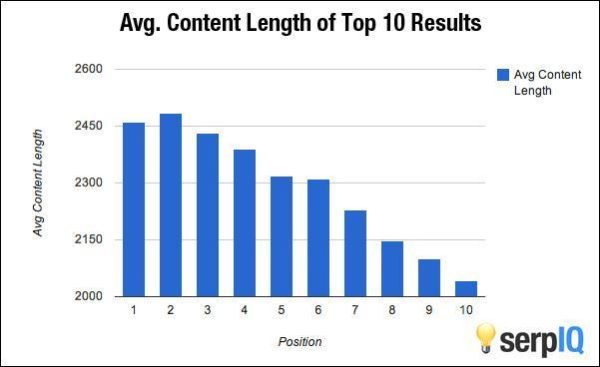5 Reasons Why Blogging is Must for eCommerce SEO
With so much hype around video content in the last few years, it is quite tempting to think that blogging is losing its momentum. However, you don’t have to swear by this notion and revamp your e-commerce SEO strategy for 2018 and years ahead. You must include blogging in your 2018 marketing strategy because blogging is more than just driving traffic to your e-commerce site. It is a great way to pique the interest of your audience and generate more leads, sales, and conversions for your business.
Here are a couple of statistics to realize the potential of blogging:
- 61% of online consumers in the United States have made a purchase decision based on the recommendation from a blog. Source: BlogHer
- Businesses that consider blogging as a chief part of their content marketing strategy get 67% more leads than those who don’t. Source: Hubspot
- 60% of marketers consider blog content creation as their top inbound marketing strategy. Source: Hubspot
- If you consider blogs as part of your website, you have a 434% higher chance of ranking better on SERPs. Source: TechClient
Considering the above data, here are some proven ways to include blogging as a vital part of your e-commerce SEO strategy:
1. Publish more content
If you want to leverage the potential of blogging for your e-commerce business, you should increase the content frequency on your website. Publish as many blogs as you can, or at least two or three blogs a week. Always ensure that you are producing meaningful content that not only engages your audience but also smartly promote your products and category pages.
For this to really work well, you need to publish more content. If reports are to be believed, companies that publish 16+ blog posts a month get 4.5X more leads and 3X more traffic than those blogging less than four blogs per month. From the stats, it is clear that content quality alone isn’t sufficient to thrive in the competitive marketplace. Quantity and frequency also play a significant role. In a nutshell, publishing more content on your e-commerce site will yield fruitful results for your business.

2. Publish longer blog posts, more comprehensive content
When you are competing with the big players in your niche who are willing to spend millions of dollars on SEO to market their products, blogging can be a savior for you. It is no more surprising that Google loves content, and having rich and meaningful content on your site gives you an edge over your competitors. If you are competing for the keywords with a higher search volume, you need more than just an ordinary blog post. In fact, you need to publish comprehensive evergreen content.
In the last few years, several studies have been conducted emphasizing longer content = better search rankings. The below image clearly indicates that the higher the word count, the better the positioning in search results.

In fact, Neil Patel, a renowned influencer on the web himself wrote an insightful post on why 3000+ word blog posts get more traffic and higher search rankings.
If you want to get the most out of blogging for your e-commerce business, you should start investing in the long-form content.
3. Treat your blog a core part of your internal link building strategy
Internal link building is one of the most effective on-page SEO strategies. Alas! It is considered an underrated SEO technique and practiced by not many of us. You may have seen many people freaking out for getting links from external sources, but they tend to overlook their own website that can help them in optimizing their online presence and rank higher in SERPs.
Recently, a case study of Mention was published unveiling how their traffic had grown by 373% in just 6 weeks by implementing on-page SEO strategies. It is clear that internal link building played a significant role in this whopping increase in traffic.
Also, it is important to keep in mind that getting links from external websites are not only time-consuming, but it is highly unlikely that your commercial product pages will be directly linked with the external sites. Instead, external sites are more interested in linking your insightful blogs. Once your blogs get linked with external websites, you can redirect the traffic from your blogs to your key product pages by smartly incorporating the keywords into the content.
4. Answer the queries of users
Most of the queries users search on the internet are in the form of questions. For instance, if you run an e-commerce store that deals in wedding dresses, you can create blog posts on “what is the best wedding dress”, “what is the best dress for friend’s wedding?” or “what is the best dress for a wedding reception?” and so on. In the blog post, you can compare various wedding dresses based on the colors, fabrics and other factors and you can also link the dresses used in your blog post with your product pages and category pages on your store. Blogging lets you create content tailored to the queries of the users. You can use this sort of content to drive traffic, leads, and sales to your store.
5. Build Your Brand Loyalty with Blogging
You may have the best-in-class products in the world, but if you don’t engage in building brand loyalty, the number of repeat customers at your store is likely to get reduced. As an e-commerce store owner, you should try to find the new opportunities along with ecommerce seo services to build the brand loyalty.
While your blog alone won’t build brand loyalty, but it will certainly play a fundamental role in the process. As long as you are maintaining the right balance of the information, fun, professionalism, and relevancy —it will help you build loyalty.
Final Words
Though it seems that there is no relation between e-commerce and blogging. When you consider the aforementioned usages of blogging for e-commerce, you can easily conclude that it is a great fit for your online business.
About The Author
Vachel Ladd has an extensive experience in e-commerce store solutions. He knows the ins and outs of Magento and also provides custom Magento Development Services at affordable prices. Besides this, he loves to share the latest updates related to Magento through insightful blogs, articles, and web content.
















